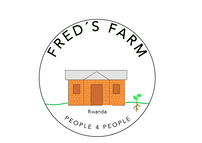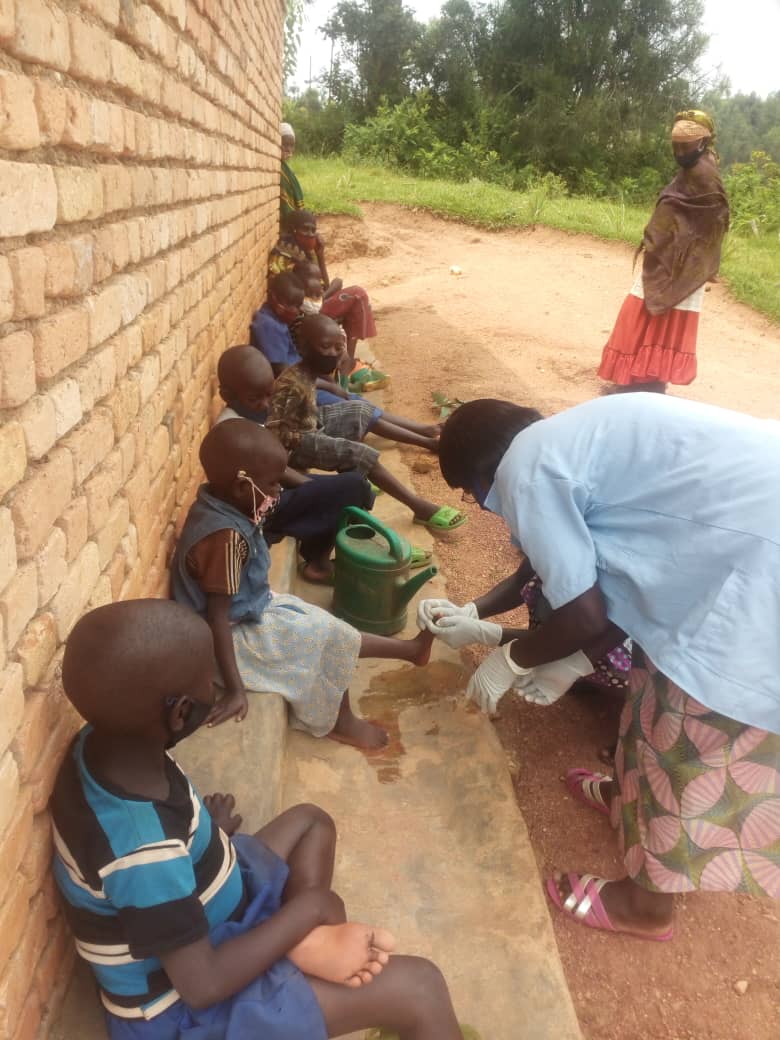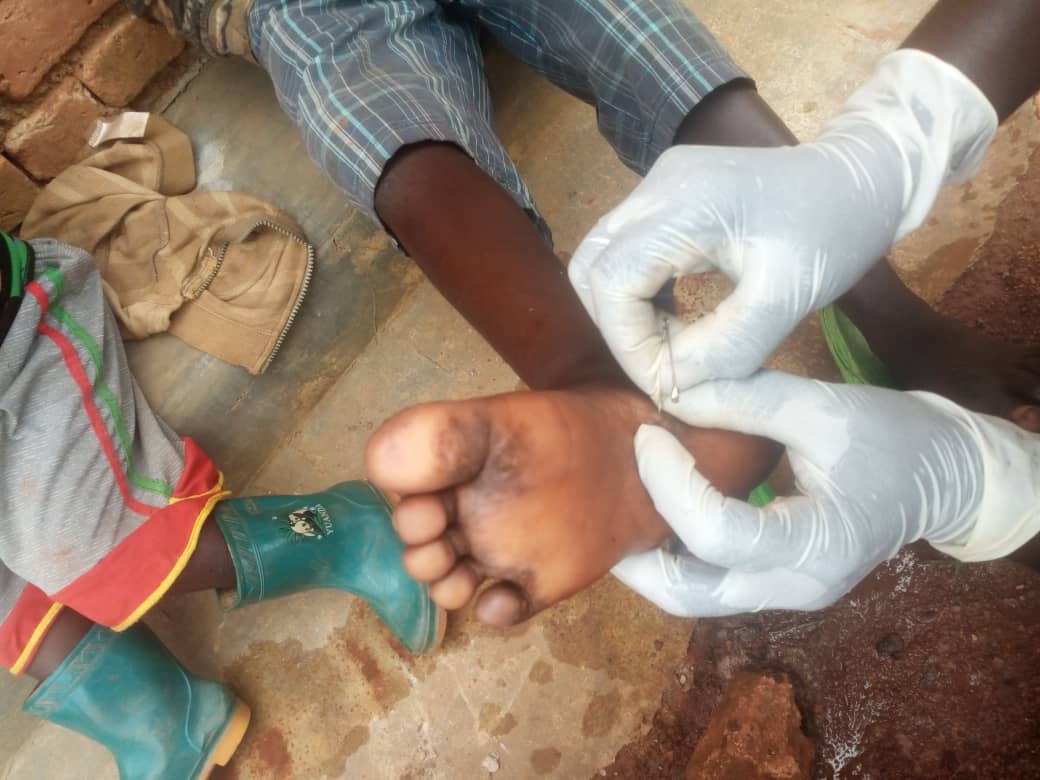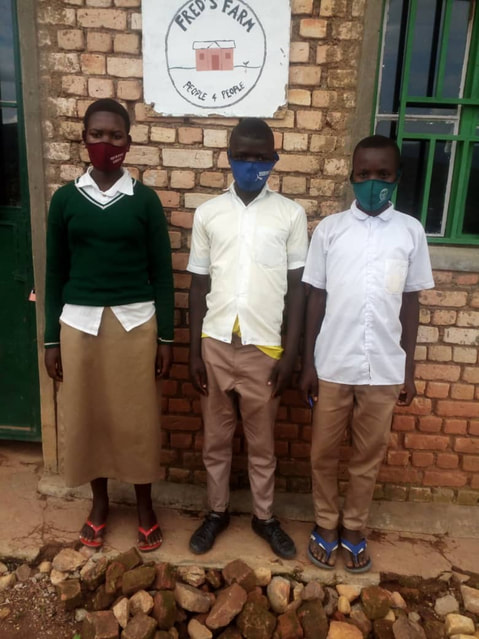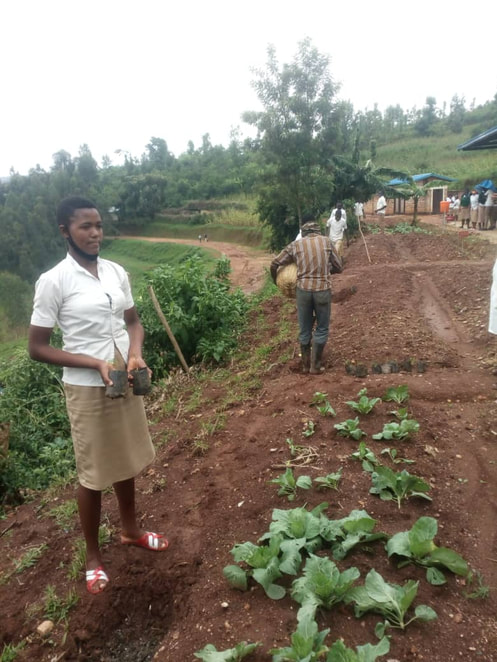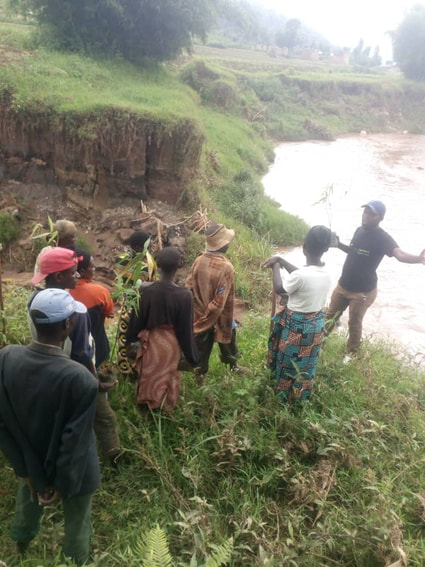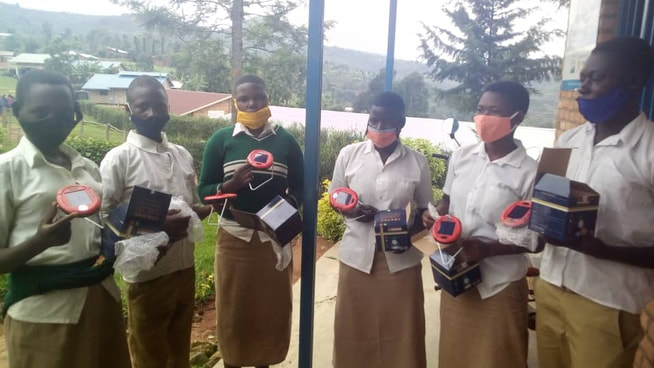|
UPDATE FRED’S FARM, March 2021 Yippee!! We’ve had a wonderful start to 2021! 😊 January 2021, we were very unsure about the coming year. Our thoughts were focused on how best we could keep activities functioning on and around FRED’S FARM. Three months on, after many online meetings with Rwanda and much deliberations, we’ve managed more than expected. We have:
JIGGERS: We invited all with “Jiggers” in the Twa village to come to FRED’S FARM for medical treatment. Both children and adults came forward, in total 17 people. Enough funding for all 17 treatments was secured, approx. £20/treatment. Treatment of the parasite was carried out in February. In addition preventative measures were put in place; instruction in washing their feet with soap and wearing footwear. Both soap and footwear were provided. The condition is painful as the parasite burrows into the feet, lays eggs causing infection. The condition is also connected with shame resulting in people trying to hide from social contact. Children cannot attend school if they have Jiggers. The adults who were treated will in time be able to look after their families again. INTERNSHIP PROGRAMME: Three pupils, Marie Rose Tuyishime, Emmanuel Rwabituku and Evariste Rizinde, were selected by the headmaster and began as interns in March. All three pupils come from vulnerable families in the area. The prime aim is to lift the status of agriculture and cultivation, and to get hands-on training in practical, sustainable farming. Gained knowledge can in turn be used in their home setting. They come to the farm for 12 weeks after school and on Saturdays. To motivate the pupils, they get paid a small amount every week. The students who complete this programme get a diploma and a small sum of money to start a small agricultural project at home.This is a pilot project which we shall evaluate at the end of May. The school is exceptionally positive to this project. SCHOOL FOOD: 50 moringa saplings were given to the local school in February. The pupils planted the trees. In addition Jacques has ensured the pupils know about the high nutritional value moringa. Moringa leaves will in time be used in the school lunch. DEMO PLOT: This area will have a large variety of perennial trees and plants which provide edible, nutrition - rich food through the whole year. In February we planted 10 mango, 10 avocado and 10 papaya seedlings. In addition 50 calliandra and 50 grevillea (used for animal feed, shade and ground cover) tree seedlings. There are already moringa saplings established in this area. All of these plants are trees, and will form the perimeter of the plot. In September, in the next rainy season, other plants will be planted. This demo plot will function as an educational tool, an example of how a small holding can be planted to get maximum output. Farmers, school pupils and anyone else who wants, can visit this demo plot. The interns from the school are helping to plant, weed and care for it. FARMER TRAINING: 50 farmers, including 30 people from the Twa village were invited to come to the farm for a teaching session on planting and caring for moringa. All 50 received two moringa tree seedlings each to take home to plant. They will be followed up by our agriculturalist, Jacques, and the district agriculturalist. Moringa trees, primarily the leaves, are very rich in nutrients. BAMBOO: Over the past years we have been doing background research to start a bamboo project. Several organizations in Rwanda and elsewhere have been contacted, both to learn and try to find competent people to help us. In March, we carried out the first phase of the plan; 500 bamboo plants were planted in a 5m belt on a 2 km stretch of the river on Fred's land. This is done to prevent erosion and soil loss during flooding, a dramatic annual occurrence. We invited 10 farmers who cultivate land close to the river to work for us for a week to help plant, and learn. In addition we employed Patrick, a technician from the company where we bought the plants to train both Jacques and the farmers. Once established, the bamboo is a valuable resource and can be used as a building material, as animal fodder and as fuel. In addition to the 500 plants which are planted, we have a further 300 which will be planted in the near future in other areas close to Fred’s land which are exposed to flooding. This work will be carried out in collaboration with the local authorities. SOLAR READING LAMPS: The solar lamps we gave to the school just before the COVID-19 lock down (and school closure) in February 2020, are now in use! These 47 lamps are borrowed by final year students, and some teachers. There is no mains electricity in this area. We will follow up use of the lamps to see if the system functions as intended. The lamp library was put on hold as the school was closed from March til December. OTHER
In 2021 we anticipate uncertainty and restrictions due to COVID-19. At present in Rwanda there are various travel restrictions between the different districts in the country. For us this means we can’t sell our cows as planned last year. Several people in different areas of the country have expressed interest to buy some dairy goats - this also is not possible. BUT the school opened in December 2020, and daily workers in the agricultural sector can work. A big thank you to all who have supported FRED'S FARM. This makes it possible to keep the basic activities going and to develop. In this way we can support a large group of people who live in poverty, some on the brink of famine. As mentioned before, COVID-19 has made their situation extra challenging, and our continued activities have made an enormous positive difference in these difficult times. In the past months more people now give monthly to the project, and we are especially grateful for this! But to have a predictable economy, we do need more. So we hope that there are some of you who will consider this:) Bank information Bank account number: 4212 24 53957 IBAN: NO58 4212 24 53957 BIC/SWIFT: SPTRN022 Bank name: SpareBank 1 SMN, Postbox 4796 Torgarden, 7467 Trondheim, Norway
0 Comments
Leave a Reply. |
Details
Categories |
